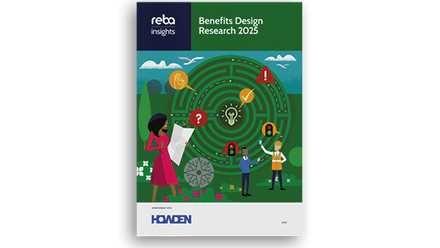How COVID-19 has illustrated the importance of employee financial resilience

Cushon's Steve Watson will be speaking on 16 September at this year's Employee Wellbeing Congress. His session will look at transforming your wellbeing strategy from pensions to workplace savings.
As the UK starts to get back to some sense of normality and lockdown restrictions begin to ease, many believe that the deep lasting effects of the pandemic are still yet to be seen, and there’s a long way to go before we’re out of woods. And while restrictions ease and we start to feel a sense of normality returning, for many individuals the financial impact of the virus is likely to have a detrimental impact for the longer-term.
Changing attitudes to financial resilience
The situation means that many people have suffered a change in circumstances – whether that’s through illness, unemployment, reduced hours or family members who are currently unable to contribute financially. Among so many other things, the coronavirus pandemic has shown us that having financial resilience, planning ahead and having a buffer for any potential bumps in the road, is absolutely crucial.
In our recent financial resilience survey conducted in May, the importance of putting money aside for emergencies was clear. More than three quarters (78%) of employees said that COVID-19 had made them realise they need savings to fall back on, while 74% said that not having enough savings was now a big financial concern.
In our 2019 Realigning the workplace offering to meet the needs of millennials research, we found that 88% of employers felt responsible for their team’s financial wellbeing. While, in our latest financial resilience research, we also found that 90% of employers felt that financial worries had a negative impact on an employee’s mental health, while 87% said that this had an adverse impact on an employee’s performance. It’s therefore in the employer’s best interest to help its workforce as best they can to achieve financial stability before it escalates into a far bigger problem.
Workplace savings
Although existing benefits packages such as season ticket loans and gym memberships aren’t being used, companies are having to find new ways to engage with staff, attract new talent and look at what their workforce really need support with right now. This is where employers can step in and offer their employees a workplace savings and investment initiative.
Allowing employees to save direct from pay each month will help them build up a savings pot that they can fall back on, should the unexpected happen. Yes, they can do this through a high street bank or online, but why not make it easy for them? If it comes out of pay before it hits their accounts, they’re more likely to leave it to grow. And that’s where they can start to build financial resilience and protect themselves against future unexpected events – or save for the things they actually want and need. Employers can contribute too – by matching contributions as a percentage through a flex allowance, you’ll be helping employees create good savings habits which are fundamental to financial resilience. Not only that, you’ll start to see more engagement and improved financial wellbeing. So if something like this happens again, your workforce will be better prepared to weather the storm.
As the UK starts to open up for business again, worries around personal finances remain prevalent. There’s no sugar coating it – it’s a strange and worrying situation – but for those with accessible savings, the future probably looks a little brighter. At the very least it provides stability and the reassurance that they can cover the basics financially.
Most of us save regularly into a pension pot through employer contributions which come straight out of our salary. So why not put money into a savings vehicle such as a lifetime ISA in the same way? Especially for your younger employees, whose priorities aren’t pensions.
Our recent research found that for young people, buying their first home was their number one priority. With the Chancellor announcing a freeze on stamp duty on homes up to £500k until March 2021, combined with the government’s 25% bonus when saving with a Lifetime ISA for a first home, now would seem a good time to start building those savings.
The mental health implications of poor financial resilience
No one wants to think about the worse happening, but getting a grip on personal finances at times like this gives us back some control. The mental health effects of the COVID-19 crisis are clear. Loneliness, anxiety and stress have been commonly recognised throughout the pandemic. But the British Medical Association’s Impact of COVID-19 on mental health in England report also warns against the potential of an economic downtown, and the risks to mental health. It highlights research from the Centre for Mental Health that looked at the impact of the 2008 banking crisis, and noted that we “might expect an additional 500,000 people to experience mental health conditions”. Financial resilience helps us sustain better mental health, which means you get employees who are in a better position to continue keeping your businesses afloat during hard times.
No matter their age, how much they earn or what their priorities are, employers should help their employees with their financial wellbeing and encourage healthy savings habits via the workplace. Ultimately it boils down to education, tools and choice. These are key to ensuring that employees are able to make informed decisions about their finances and what is best for them.
The author is Steve Watson, head of proposition at Cushon.
This article is provided by Cushon.
Cushon is exhibiting at the virtual Employee Wellbeing Congress in September. You can now view the full event programme and register to attend.
Supplied by REBA Associate Member, NatWest Cushon
NatWest Cushon is a workplace pensions and savings provider with an award-winning proposition.







